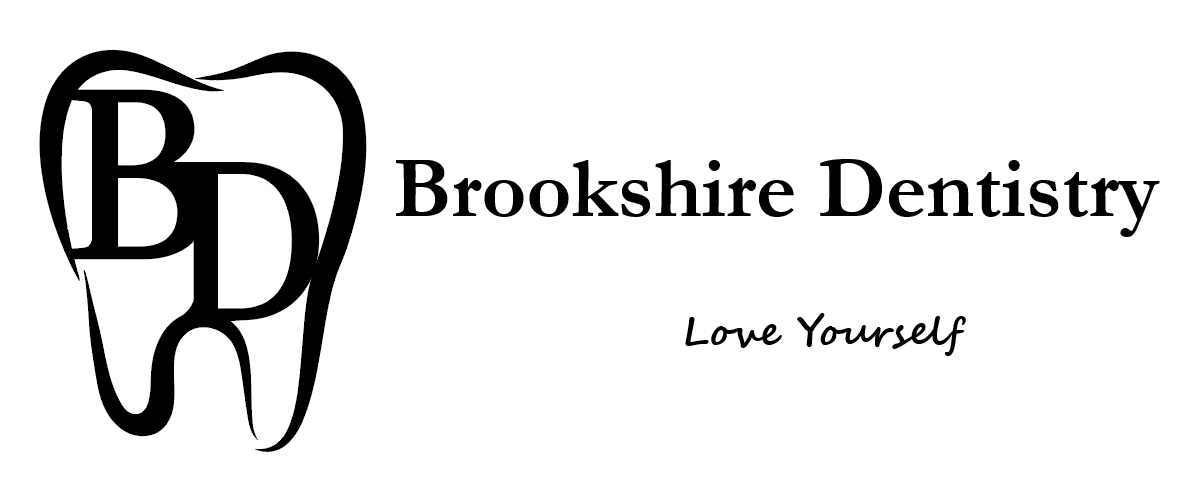Why Are My Gums Bleeding?
Bleeding gums are a common issue that many people experience at some point in their lives. While occasional bleeding may not seem like a big deal, persistent gum bleeding can be a sign of underlying oral health problems. Understanding the causes of bleeding gums and how to address them is crucial for maintaining healthy teeth and gums. At Brookshire Dentistry in Hurst, TX, Dr. Salomeh Tehrani, DDS, MPH, and her team are dedicated to helping patients understand the reasons behind bleeding gums and offering effective solutions to restore and maintain optimal oral health.
Common Causes of Bleeding Gums
There are several reasons why your gums might be bleeding, ranging from poor oral hygiene to more serious health conditions. Here are some of the most common causes:
Gingivitis
Gingivitis is the mildest form of gum disease and one of the most common causes of bleeding gums. It occurs when plaque—a sticky film of bacteria—builds up along the gumline and causes inflammation. Gingivitis can cause your gums to become red, swollen, and tender, and they may bleed when you brush or floss.
- Symptoms of gingivitis: Red, swollen gums, bad breath, and bleeding during brushing or flossing.
- How to address it: Regular brushing and flossing, combined with professional dental cleanings, can help reverse gingivitis. Dr. Tehrani can recommend a tailored oral hygiene routine to address this issue.
Periodontitis
If left untreated, gingivitis can progress to periodontitis, a more serious form of gum disease that affects the tissues and bone supporting your teeth. In periodontitis, the gums pull away from the teeth, creating pockets that can become infected. This advanced form of gum disease can cause persistent gum bleeding, tooth loss, and damage to the jawbone.
- Symptoms of periodontitis: Gums that bleed easily, receding gums, bad breath, and loose teeth.
- How to address it: Treatment for periodontitis may include scaling and root planing (a deep cleaning procedure), antibiotic therapy, and, in severe cases, surgery. Dr. Tehrani will assess the extent of your gum disease and recommend the most appropriate treatment.
Improper Brushing or Flossing Techniques
Brushing too hard or using improper flossing techniques can damage your gums and lead to bleeding. While it’s important to clean your teeth thoroughly, it’s equally important to be gentle with your gums.
- Signs of improper brushing: Gums may feel sore or sensitive after brushing or flossing, and you may notice small cuts or abrasions.
- How to address it: Switch to a soft-bristled toothbrush and use gentle, circular motions when brushing. When flossing, avoid snapping the floss into your gums. Dr. Tehrani can show you the proper brushing and flossing techniques during your next visit to Brookshire Dentistry.
Hormonal Changes
Hormonal changes, particularly during pregnancy, menstruation, or menopause, can cause your gums to become more sensitive and prone to bleeding. This is known as pregnancy gingivitis or hormone-induced gingivitis.
- Symptoms of hormonal gingivitis: Red, swollen, and bleeding gums, especially during brushing or flossing.
- How to address it: Maintain a consistent oral hygiene routine and visit Dr. Tehrani for regular dental cleanings to keep your gums healthy during periods of hormonal changes.
Vitamin Deficiencies
A lack of essential vitamins, particularly vitamin C and vitamin K, can lead to bleeding gums. Vitamin C is vital for maintaining healthy gum tissue, while vitamin K helps with blood clotting.
- Signs of vitamin deficiencies: In addition to bleeding gums, you may experience fatigue, bruising easily, or slow wound healing.
- How to address it: Incorporating more fruits and vegetables rich in vitamins C and K into your diet can help improve gum health. In severe cases, Dr. Tehrani may recommend supplements to address any deficiencies.
Medications
Certain medications, such as blood thinners, can increase the likelihood of gum bleeding. Blood thinners reduce the blood’s ability to clot, making it easier for the gums to bleed, even with minimal irritation.
- Medications that may cause bleeding gums: Anticoagulants like warfarin, aspirin, and other blood-thinning medications.
- How to address it: If you are taking blood thinners and experience gum bleeding, consult with both your physician and Dr. Tehrani to discuss your medication and explore potential solutions.
Smoking and Tobacco Use
Smoking and using tobacco products can damage gum tissue, reduce blood flow to the gums, and impair your immune system’s ability to fight infections. This can make your gums more susceptible to bleeding and increase the risk of gum disease.
- Symptoms in smokers: Persistent gum bleeding, bad breath, and receding gums.
- How to address it: Quitting smoking or reducing tobacco use can improve your gum health and lower the risk of bleeding and gum disease. Dr. Tehrani can offer resources and support to help you quit smoking and protect your oral health.
Dry Mouth
Dry mouth, or xerostomia, occurs when your mouth doesn’t produce enough saliva. Saliva helps wash away food particles and bacteria, so when you have a dry mouth, bacteria can accumulate along the gumline, leading to irritation and bleeding.
- Symptoms of dry mouth: Dry, sticky feeling in the mouth, difficulty swallowing, and bad breath.
- How to address it: Drinking plenty of water, using a humidifier, or using over-the-counter saliva substitutes can help relieve dry mouth. If dry mouth is caused by medication or a medical condition, Dr. Tehrani can provide guidance on managing it effectively.
Medical Conditions
Certain medical conditions, such as diabetes and blood disorders, can affect your gum health and increase the likelihood of bleeding. For example, individuals with diabetes are more prone to infections, including gum infections, which can lead to bleeding.
- Signs of medical-related gum issues: Bleeding gums, gum inflammation, and slow healing of oral wounds.
- How to address it: Managing underlying health conditions like diabetes is crucial for maintaining healthy gums. Regular dental visits with Dr. Tehrani are essential to monitor and address any gum health issues related to these conditions.
How to Prevent and Treat Bleeding Gums
If you’re experiencing bleeding gums, there are several steps you can take to address the issue and improve your gum health:
Practice Good Oral Hygiene
The most effective way to prevent bleeding gums is to maintain a consistent and thorough oral hygiene routine. Brush your teeth at least twice a day using fluoride toothpaste, and floss daily to remove plaque and food particles from between your teeth. Regular dental check-ups and professional cleanings are also key to preventing gum disease and keeping your gums healthy.
Use the Right Tools
Choose a soft-bristled toothbrush, as hard bristles can be too abrasive for your gums. Electric toothbrushes are also an excellent option, as they can provide more thorough cleaning while being gentle on your gums. When flossing, be gentle and avoid snapping the floss into your gums.
Stay Hydrated
Drinking water throughout the day helps keep your mouth hydrated, washes away food particles, and supports saliva production. If you have a dry mouth, staying hydrated is especially important to prevent irritation and bleeding.
Eat a Balanced Diet
A healthy diet that includes plenty of fruits and vegetables can help maintain healthy gums. Vitamin C-rich foods, like oranges and strawberries, are particularly beneficial for gum health. Limit sugary snacks and beverages, as they can contribute to plaque buildup and gum irritation.
Visit Your Dentist Regularly
Regular dental visits are essential for preventing and treating bleeding gums. Dr. Tehrani can detect early signs of gum disease, recommend treatments, and provide guidance on improving your oral hygiene routine. Professional cleanings at Brookshire Dentistry can remove plaque and tartar buildup that brushing and flossing can’t reach.
Conclusion
Bleeding gums should never be ignored, as they can be a sign of gum disease or other health concerns. At Brookshire Dentistry in Hurst, TX, Dr. Salomeh Tehrani and her team are dedicated to helping patients achieve and maintain healthy gums. If you’re experiencing bleeding gums, don’t hesitate to schedule an appointment with us. We’ll work with you to identify the cause and provide the treatment and care you need to protect your smile and overall oral health.
Office Hours
MON8:00 am - 5:00 pm
TUE8:00 am - 5:00 pm
WED8:00 am - 5:00 pm
THU8:00 am - 5:00 pm
FRI8:00 am - 4:00 pm
SATClosed
SUNClosed



